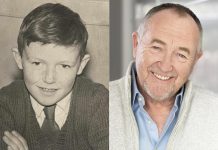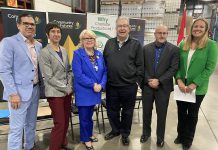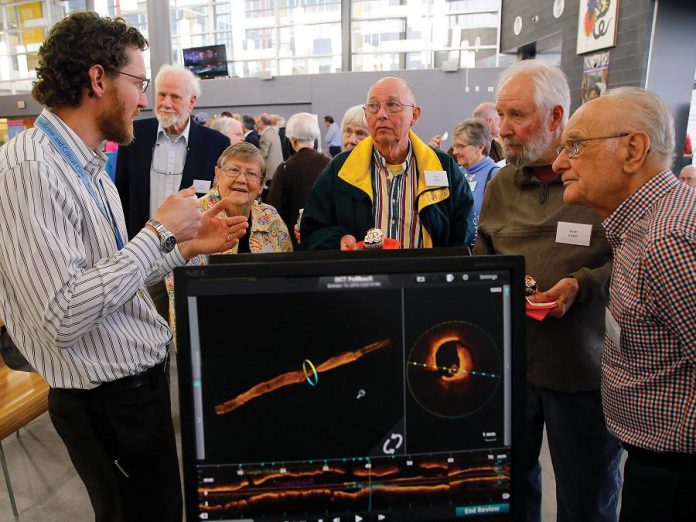
Did you know that the Peterborough Regional Health Centre (PRHC) Foundation, which raises funds for equipment and technology at Peterborough’s hospital, has been recognized as a “High Performer” for 2014/15 by the Association for Healthcare Philanthropy?
The international professional organization, whose 5,000 members represent more than 2,200 healthcare facilities across Canada and the United States, gave the designation to only 45 healthcare foundations this year.
“We’re extremely proud of this achievement because it speaks to the commitment of our team and our Board of Directors to the responsible stewardship of your donations,” says PRHC Foundation President & CEO Lesley Heighway.
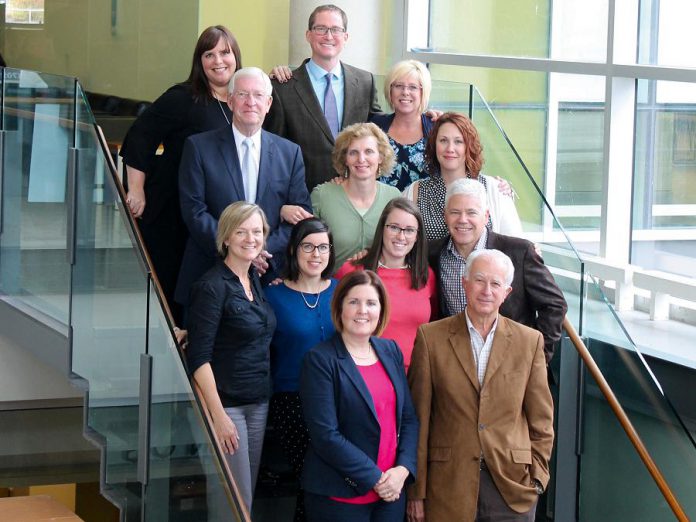
The “High Performer” designation, which is based on factors like net fundraising returns, return on investment of donations, and the cost to raise money, confirms the significant impact the PRHC Foundation is able to have on patient care through donors’ gifts.
Here are three areas where community donations to the PRHC Foundation have had a real impact on patient care at the hospital this past year — and one area where the Foundation needs your support this holiday season.
Upgrades to the Cardiac Catheterization Laboratory
Thanks to community donations, residents of Peterborough and the surrounding region have access to world-class cardiac care at PRHC. Specialists at the donor-funded Cardiac Catheterization Laboratory can not only diagnose coronary artery disease and treat it before it leads to a heart attack, but they can also provide emergency treatment that can stop a heart attack in its tracks.
Coronary artery disease is caused by a buildup of fatty deposits on the walls of the artery that can block the flow of blood to the heart. Many people only find out they have the disease when they have a heart attack, which happens to somebody in Canada every seven minutes. Almost 16,000 Canadians die each year as a result of a heart attack — many before they even get to a hospital.
Interventional cardiologists at PRHC open a blocked artery by temporarily inserting and inflating a tiny balloon where the artery is clogged to help widen the artery. Called an angioplasty, it’s often combined with a cardiac stenting procedure, where a small wire mesh tube called a stent is permanently placed in the artery to keep it open and decrease its chance of narrowing again.
Because PRHC can perform angioplasties at the Cardiac Catheterization Laboratory many lives have been saved, and thousands of people have been spared the inconvenience, discomfort, and expense of having to travel to Kingston or Toronto. So far in 2016 alone, PRHC’s Interventional Cardiologists have performed 1,880 angiograms and 804 cardiac stenting procedures — 180 of them while a heart attack was actually taking place.
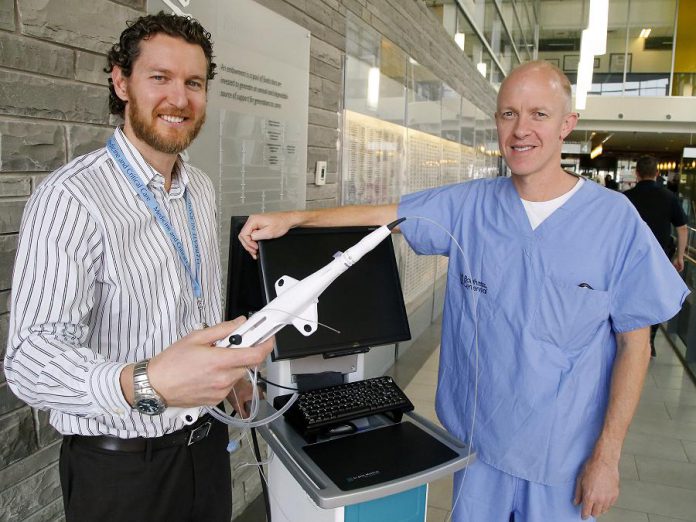
PRHC’s two cardiac catheterization suites have been in nearly constant use since 2008; however, in the years since the suites were outfitted, technological innovations have revolutionized the industry.
To take the Cardiac Catheterization Laboratory to the next level of patient care, cardiac specialists needed the support of the community to invest in new tools and technology which would not only make procedures safer and more efficient, but allow them to take on more complex, challenging cases — sparing even more patients the need to be transported to a large urban hospital.
Community donors stepped forward and funded a vital upgrade to the technology that powers the Cardiac Catheterization Laboratory, one that allows for a drastic reduction in the amount of radiation exposure for both patients and hospital staff.
“Through both hardware and software improvements to our cath labs, we’ve been able to dramatically cut down the radiation dose of every procedure by as much as 75 per cent,” says Dr. Warren Ball, Interventional Cardiologist and Head of Division, Cardiology. “Not only is this safer for our staff, it’s safer for patients, particularly when they’re undergoing a longer procedure or if they have to come back for a second procedure.”
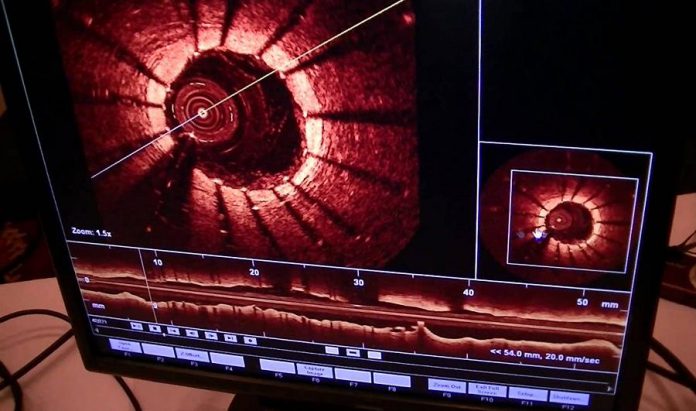
Another upgrade resulted in a significant improvement in how PRHC’s interventional cardiologists view arteries and potential blockages during a procedure. Optical Coherence Tomography (OCT), commonly used by ophthalmologists in eye care, has been adopted by cardiologists as it provides exceptionally clear and high-resolution images of a cross section of tissue.
Essentially an “optical ultrasound,” OCT allows cardiologists to study the inside of coronary arteries in real time using light waves. The difference between images produced using the earlier procedure of dye and ultrasound and those produced by OCT can be described as the difference between fuzzy black and white television and high definition digital television.
“This newest technology allows for crystal clear images of the walls of the arteries,” Dr. Ball explains. “It’s another example of how PRHC wants to bring the best technologies to our whole community. The government doesn’t pay for these technology upgrades, but these are vital for us to deliver the best possible care to our region.”
New equipment for the Department of Surgical Services
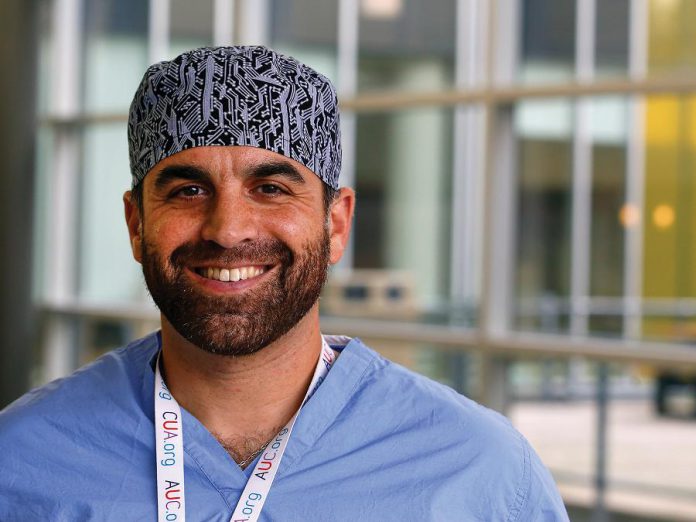
Community donations to the PRHC Foundation have also funded a C-Arm unit for the Department of Surgical Services, making a real difference in the lives of patients requiring surgery.
The C-Arm is a mobile fluoroscopy unit — a type of X-ray machine — used during complex surgeries, often cancer related. The device provides high-resolution images in real time, allowing a surgeon to monitor progress at any point during the operation and immediately make any corrections that may be required.
Using a C-Arm enhances accuracy and increases efficiency, decreasing the length of procedures and improving patient outcomes.
“The new surgical C-Arm is a huge asset,” explains PRHC Urologist Dr. Jacob Hassan. “It’s allowing us to move from surgeries that require large and painful incisions to minimally invasive endoscopic day surgeries. This results in less pain, fewer complications, and shorter hospital stays for the patient.”
Recruiting three new surgeons
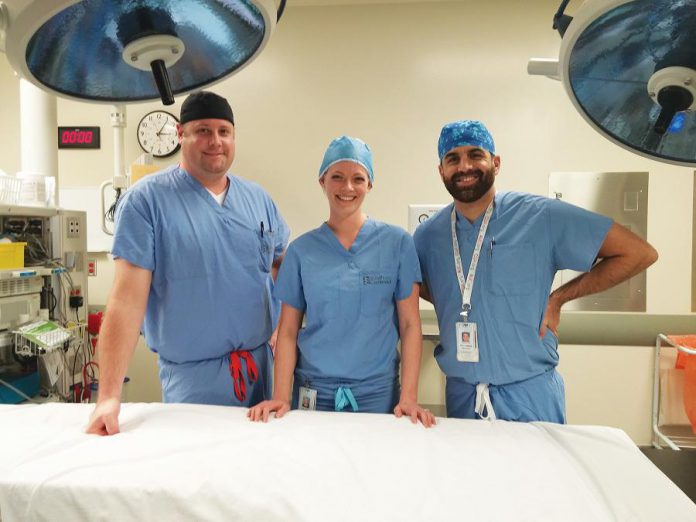
A hospital’s ability to fund state-of-the-art equipment and technology through community donations is one way to attract and retain healthcare professionals.
“Many people don’t realize the government does not typically fund hospital equipment or technology,” says Lesley Heighway, PRHC Foundation President & CEO. “That’s why the most generous communities have the best hospitals.”
Three new specialists recently joined PRHC’s Surgical Department. Dr. Stephen Preston is an Orthopedic Surgeon specializing in hip and knee surgery. Dr. Jennifer Klok is a Plastic Surgeon specializing in breast reconstruction. Dr. Jacob Hassan is a Urologist with special training in minimally invasive surgery.
All three surgeons have said community and hospital support of their programs was an important factor in their decision to relocate to Peterborough and join the team at PRHC.
New mammography units needed for the Breast Assessment Centre
One of the reasons Dr. Rola Shaheen, Chief of Radiology and Medical Director of Diagnostic Imaging at PRHC, came to PRHC in 2015 was because of community support for the Breast Assessment Centre.
“I wanted to work at a hospital that cares so deeply about patients and has the support of such generous people,” Dr. Shaheen says.
When PRHC’s Breast Assessment Centre opened eight years ago, community donations helped to fund the centre’s three existing digital mammography machines, which perform 8,000 mammograms every year and have saved many lives.
Early detection of breast cancer is critical. In fact, thanks to a combination of early detection and advanced treatment options, some studies tell us that the five-year survival rate for women with breast cancer that hasn’t spread beyond the breast can be as high as 98.5%.
VIDEO: Mother/grandmother & breast cancer survivor Michelle Thornton shares her story
However, the machines at the Breast Assessment Centre are now eight years old. Not only do they need to be replaced, but advances in breast-screening technology can improve patient care even more.
That’s why the PRHC Foundation is currently seeking community donations to their $1.9 million breast screening priority so the Breast Assessment Centre can acquire three new state-of-the-art mammography units capable of three-dimensional mammograms, also known as tomosynthesis or “tomo”.
“The purchase of three new mammography units and the introduction of three-dimensional technologies is the exciting next step,” Dr. Shaheen adds. “It will give me and my colleagues the ability to look at the breast from many angles to confidently determine if anything looks suspicious. It will reduce the need for call-backs, reducing anxiety in patients.”
“And, most importantly, it will help us detect tumours earlier and smaller in size. Imagine what this new technology will mean to the women in our community — maybe even someone in your family.”
This holiday season, consider making a generous gift that will make a real difference in the lives of patients. To make a donation, call 705-876-5000 or visit http://bit.ly/make-a-gift-to-prhcf.
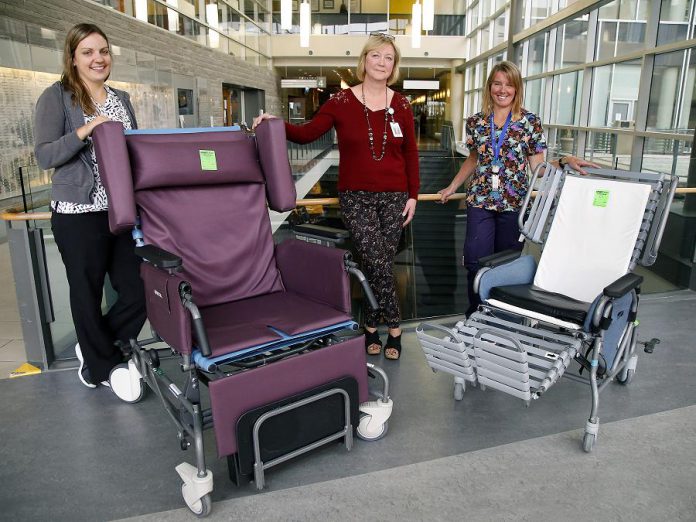
All photos supplied by PRHC Foundation except where noted.










